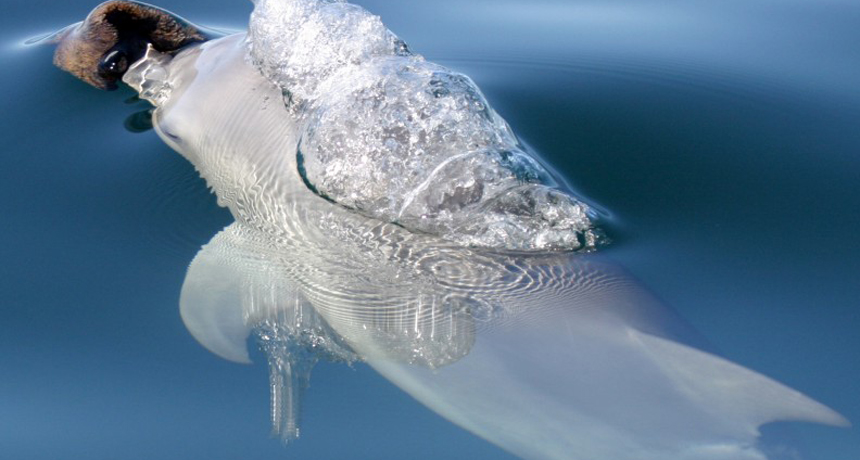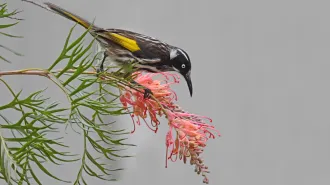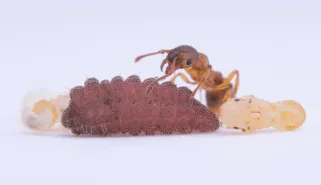Dolphins use sponges to dine on different grub

By carrying sponges in their beaks while they hunt, dolphins may be able to sweep away much more sand from the ocean floor and scare up new types of food. Analysis of the animal's fatty acids support this idea.
Simon Allen/Murdoch Univ.






